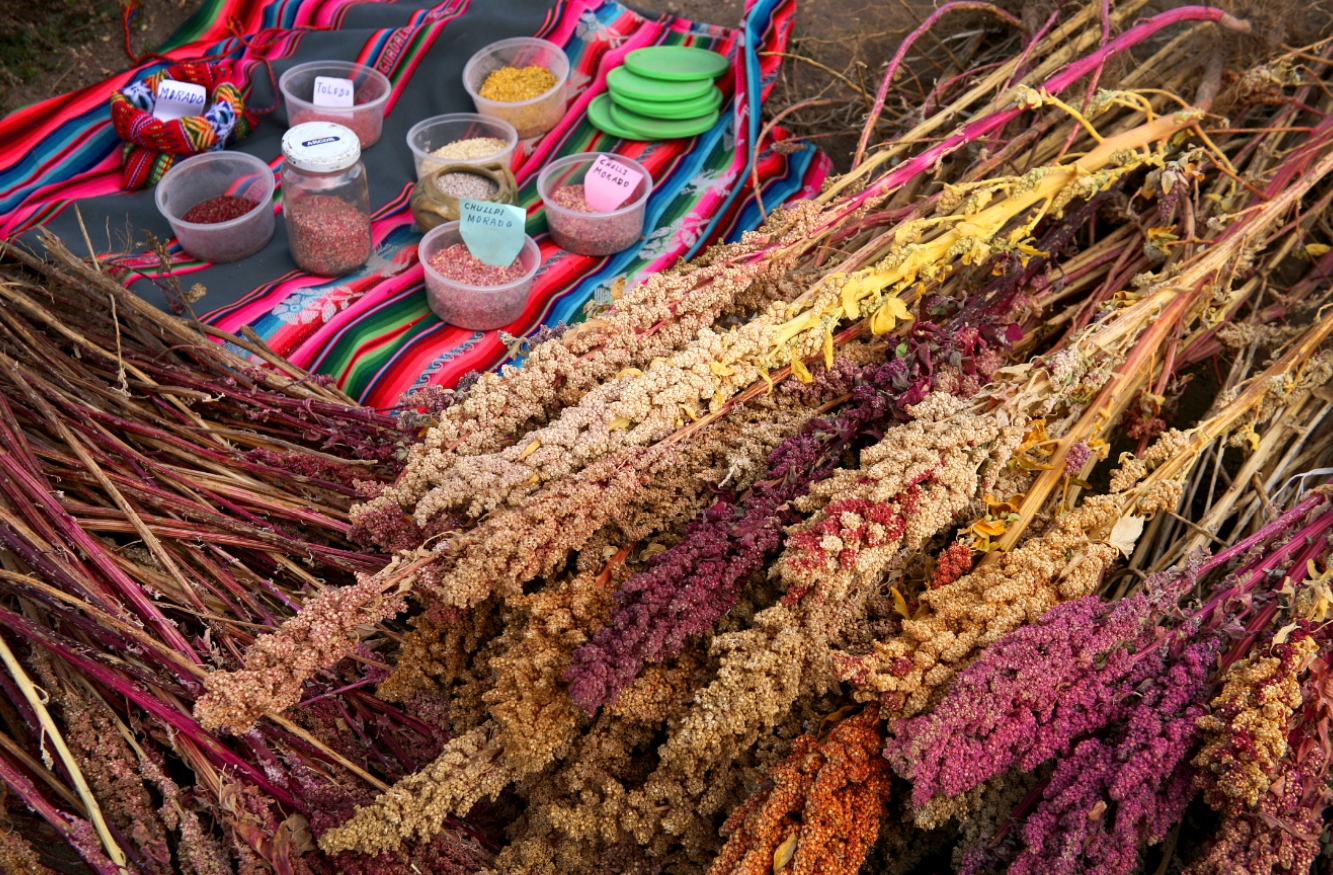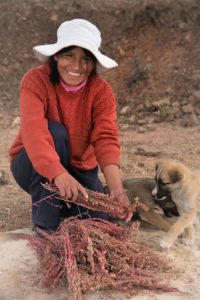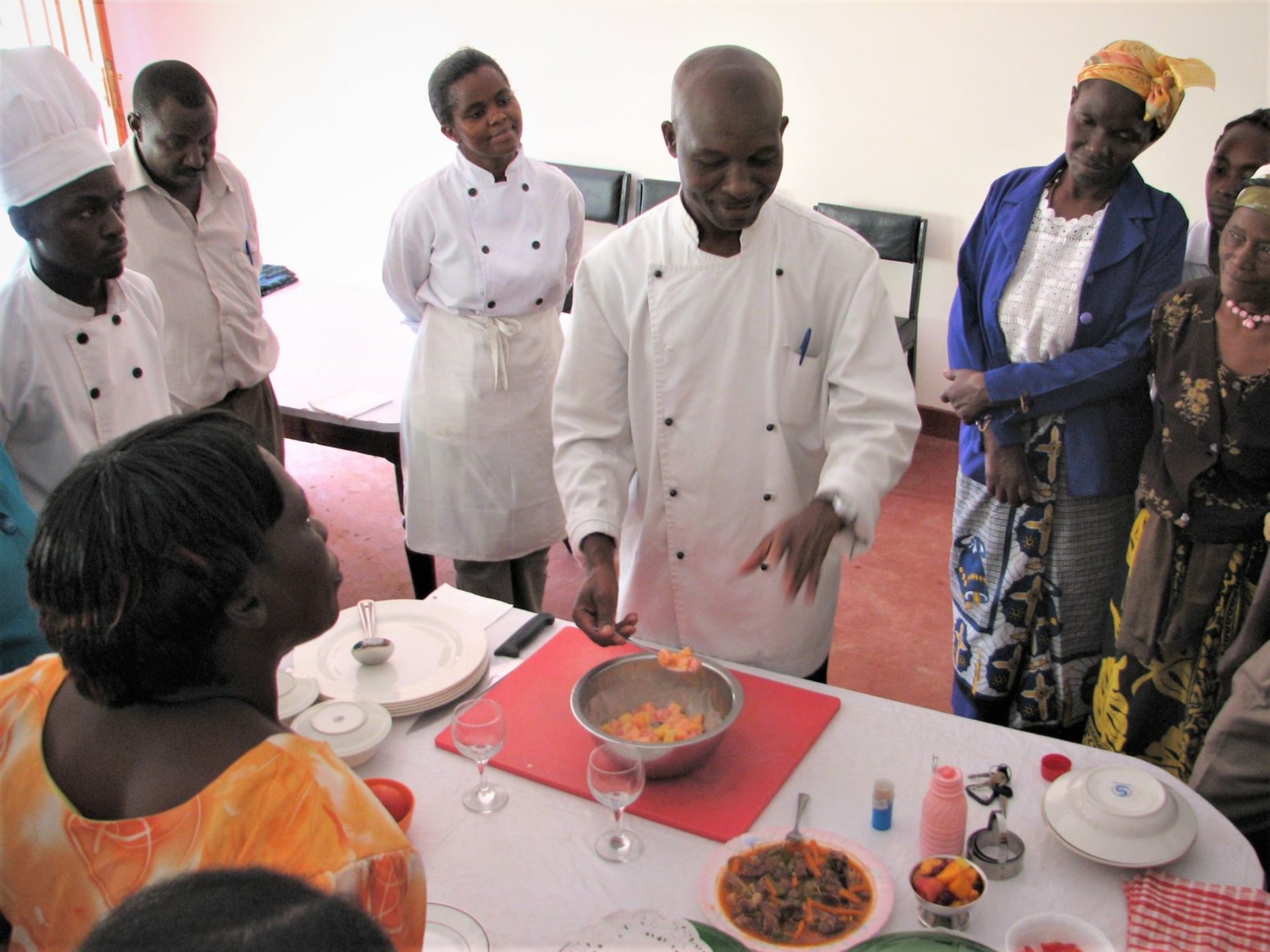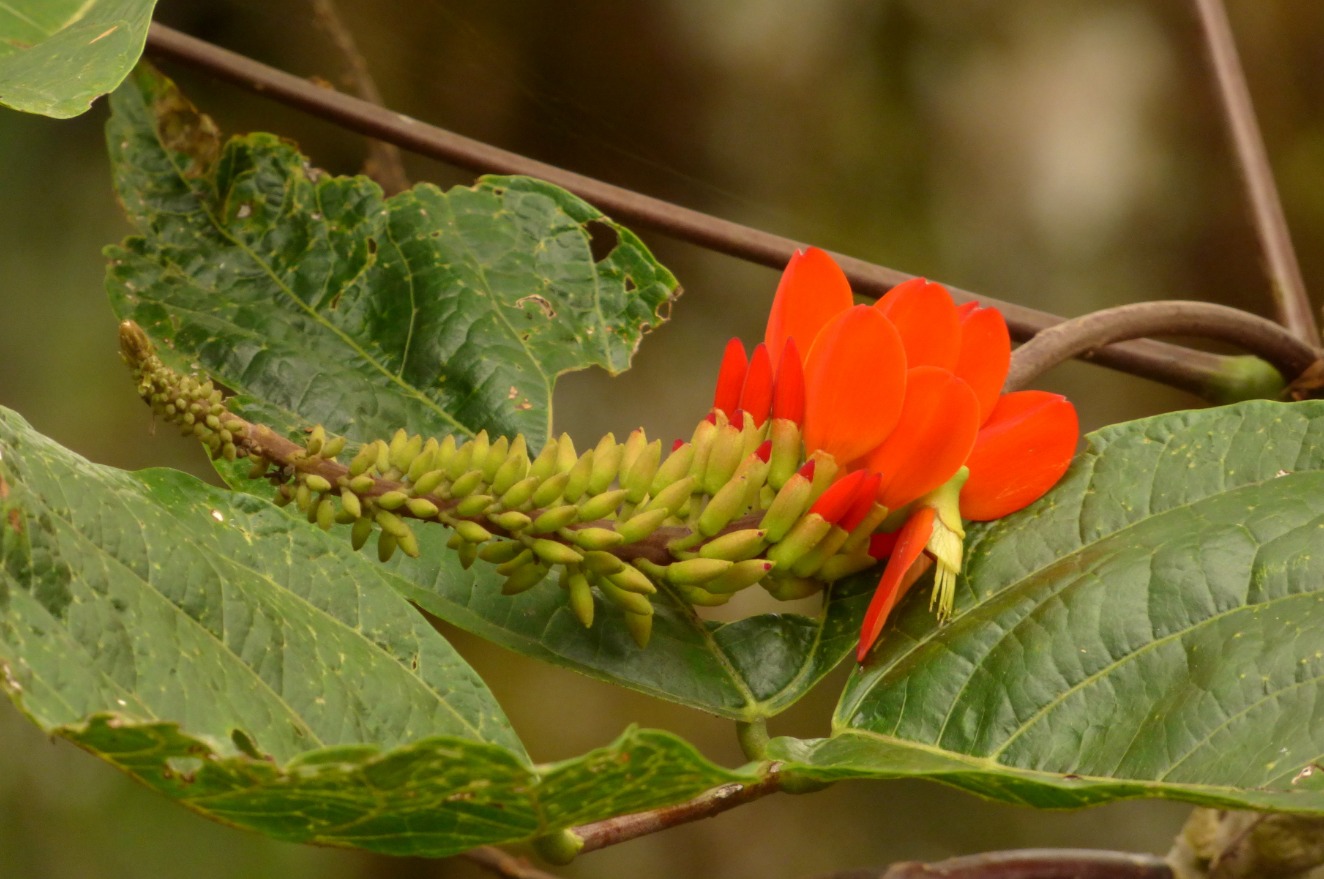The chachafruto (‘basul,’ Erythrina edulis), a leguminous tree native to the Andean region that produces large and sweet beans inside its pods, reminds me of my childhood in eastern Antioquia, Colombia. During the harvest season, the beans were used to produce delicious and super nutritious cakes. It was so popular that one of the local chivas, rustic colourful buses used in rural Colombia and Ecuador, was called ‘Chachafruto Express.’ Today we still enjoy the beauty of some chachafrutos in the valleys, but as food it has been relegated to the past.
The history of the chachafruto reflects a global landscape. Bioversity International and the Food and Agriculture Organization of the UN (FAO) have identified 1,097 cultivated vegetable species with nutritional relevance and yet only 7% of them are widely used today. Other studies show that the vegetal diversity we find in grocery shops and supermarkets all around the world is more and more homogeneous, as the variety of cereals, oilseeds, fruits, vegetables and animals that are part of our diets is progressively decreasing.

This economic and development process is not improving nutrition. While nutritionists recommend a consumption of at least 400g of vegetables and fruits per day, the supply only covers 78% of global needs and this shortfall rises to 50% in some low-income countries. This homogenization process is also accelerating biodiversity loss, promoting farming systems that are more vulnerable to climate change, and contributing to loss of well-being for millions of producers and consumers.
To some extent, using different approaches, we are starting to see a reversal of this trend, promoting hundreds of forgotten, neglected or underutilized crops. There are successful cases like the one of quinoa, which went from being an almost forgotten crop to become recognised as a nutritious ‘superfood’ with an increasing market in America and Europe. Bioversity International works with quinoa farmers in the Andean region, to incentivise them to maintain the many varieties that do not have a global market currently.

Some countries, as well as multilateral agencies and the private sector, are betting on this new vein of opportunities and development. Unilever (Knorr), for example, together with organizations such as the World Wide Fund for Nature (WWF), published a report earlier this year that identifies and bets on 50 foods, prioritized according to their nutritional value, taste, accessibility and affordability – based on the recent FAO definition of sustainable diets. Other characteristics such as productivity, climate adaptability, environmental impact, diversity and amounts of critical nutrients were used to put together this portfolio of orphaned crops with huge potential.
To rescue many of these crops, governments need to implement programmes that promote their use and cultural integration among key population groups. For instance, there are pilot feeding programmes for schools and for pregnant adolescent girls and young mothers that work effectively in various parts of the world. The conservation of these orphan crops with high potential, their nutritional content, the development of post-harvest and primary processing technologies that save time and costs, as well as the establishment of value chains with low intermediation and with empowered communities of producers, accelerate with the involvement of the public sector. Small and medium enterprises that promote healthy foods, as well as famous chefs who incorporate them into their recipes, are also important allies.

We must fight today’s monotonous diet. 75% of what we consume depends on only 12 crops and 5 animal species. Nourishing the predicted population of 10 billion people by 2050 requires the diversification of the food supply and of the ways we produce our food. The chachafruto and hundreds of other forgotten crops represent a huge, untapped reservoir of opportunities.
This article is adapted from the original ‘Expreso chachafruto’ and reproduced
with kind permission from Portafolio. Read the original here.









